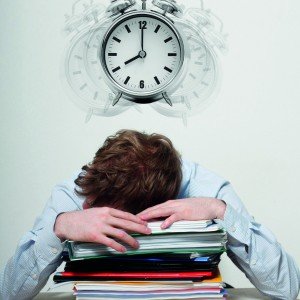The physical and mental health risks of not getting a good night’s kip have been well documented over the last few months, but is sleep deprivation also costing the British economy?
 Speaking at the SOMNEX event last week in London, Marco Hafner, a senior economist at RAND Europe, said insufficient sleep has ‘wider economic costs’ in some of the most powerful countries in the world, including the UK.
Speaking at the SOMNEX event last week in London, Marco Hafner, a senior economist at RAND Europe, said insufficient sleep has ‘wider economic costs’ in some of the most powerful countries in the world, including the UK.
According to Mr Hafner, research conducted for a report by RAND Europe for a recent report found a lack of sleep is costing the US economy $411bn a year or 2.9.% of its gross domestic product (GDP).
Sleep deprivation was also found to cost the Japanese economy $138bn a year, while the report estimated it costs the UK economy $50bn or £40bn.
Mr Hafner added that in Germany, it costs the economy $60bn and in Canada the figure is around $21bn.
He explained that these figures are based on a number of factors, including mortality, productivity and the effect sleep deprivation can have on children and young adults.
For example, he said people who regularly sleep less than six hours a day have a 35% higher chance of dying than people who get between seven and nine hours a night.
Researchers at RAND also studied the records of 80,000 workers and concluded that sleeping less than six hours a night decreases your productivity by 2.45% compared to those who get the right amount of sleep.
Sleep deprivation study
According to the report, the US loses an equivalent of around 1.2 million working days a year due to insufficient sleep.
This is followed by Japan, which loses on average 600,000 working days per year.
The UK and Germany both lose just over 200,000 working days, while Canada loses around 80,000 working days.
Mr Hafner added that a lack of sleep early on in life can also have it a “negative effect” on the kind of qualifications and jobs young people will get later in life.
He said this will also have a “knock-on effect” on future earnings, investments and prospects.
The economist also quoted figures from the US Centre for Disease Control, which stated that insufficient sleep among American adults was now a “public health epidemic” with one in three workers getting less than the recommended amount seven hours every night.
In the UK, Mr Hafner said a similar figure (35%) of the British population sleeps for less than seven hours every night, while in Japan the figure is around 60%.
Reasons
 The report also looked at the various reasons why people might not be getting enough sleep.
The report also looked at the various reasons why people might not be getting enough sleep.
Hr Hafner said they found smokers sleep, on average, five minutes a night less than non-smokers.
He added people who have financial concerns sleep 10 minutes less than people who do not have money worries and individuals who commute more than 60 minutes a day sleep on average 16.5 minutes less than workers who live nearer to their workplace.
He said many of these factors can have a cumulative effect, which can mean some people are sleeping 260 hours less a year, depending on their circumstances.
But he added there was evidence that “small changes can make a big difference” in terms of sleep quality and economic performance.
For example, he said if people in the US who currently sleep less than six hours a night started to sleep more than seven hours instead, it would add $226bn to the national economy.
He echoed the findings of other studies, by also telling attendees at SOMNEX that using smart phones and other electronic devices can also lead to a lack of sleep.
“Employers need to be a good role model and try to incorporate the importance of sleep in corporate culture,” he told delegates. “Especially so bosses don’t send work emails late at night, because that encourages employees to do the same. Give your employees a chance to take time off and distance themselves from work.”
He added the Government also needs to set an example, because it is a “huge employer”.
In addition, he mentioned RAND is currently studying the impact of getting up in the middle of the night and going to the bathroom on sleep quality and your workplace productivity.
SHP Online has reported on several other studies around sleep deprivation in recent months. These include AXA PPP healthcare’s recent State of the Nation report, which showed that more than half (54%) of people struggle to sleep at night and one in 10 of us experience insomnia.
And recently, researchers from Keele University warned more than eight hours a night could increase the risk of premature death.
“We know that insufficient sleep can impair our ability to perform routine tasks at work and at home, and in the long run, it can also have negative consequences for our mental health,” said Mr Hafner.
“A lack of sleep is associated with common infections, cardiovascular disease and dementia.
“If workers do not sleep enough, their work rate is slower, they are less motivated and are less engaged. Subsequently, they have negative consequences for employers.
“As you can see, sleep is important for individual health and wellbeing. It can also have a very positive impact on a company’s bottom line and the wider national economy.”
The full Rand report – Why sleep matters – the economic costs of insufficient sleep – is available to read online.
What makes us susceptible to burnout?
In this episode of the Safety & Health Podcast, ‘Burnout, stress and being human’, Heather Beach is joined by Stacy Thomson to discuss burnout, perfectionism and how to deal with burnout as an individual, as management and as an organisation.
We provide an insight on how to tackle burnout and why mental health is such a taboo subject, particularly in the workplace.

 Speaking at the SOMNEX event last week in London, Marco Hafner, a senior economist at RAND Europe, said insufficient sleep has ‘wider economic costs’ in some of the most powerful countries in the world, including the UK.
Speaking at the SOMNEX event last week in London, Marco Hafner, a senior economist at RAND Europe, said insufficient sleep has ‘wider economic costs’ in some of the most powerful countries in the world, including the UK. The report also looked at the various reasons why people might not be getting enough sleep.
The report also looked at the various reasons why people might not be getting enough sleep.
I suspect the 200,000 working days recorded are ‘phone in sick because I’m exhausted to the point I can’t function’ days? If so, the figure is actually going to be way bigger in reality because of presenteeism, where people are working despite being sleep-deprived, but simply working in a less productive state. As for the ‘reasons’ behind this, let’s be realistic – people have a life outside of work – they may stay up late for a film because the prats at the broadcasting company put decent films on after 11pm…. they may have to get up during the night… Read more »
There are a number of Human Factors related to self-harming through presenteeism linked not just to wok/life and biopsychosocial stressors exacerbated by over-exposure to sub-optimal display screen ergonomics but, SBS issues centered around work and day-lighting for the 48% of employees now dependent on DSE to complete daily tasks. https://www.youtube.com/watch?v=HvsJyxLXblk https://www.youtube.com/watch?time_continue=300&v=Y9t0Mnohuzg China already recognising the younger, post digital revolution generation, up to their eye-balls in fatigue, no pun intended, well maybe, as childhood myopia affecting far too many as work/life shrinks into ever smaller urban places exacerbating eye-strain in a world less than 20ft away, requiring the individual to almost… Read more »